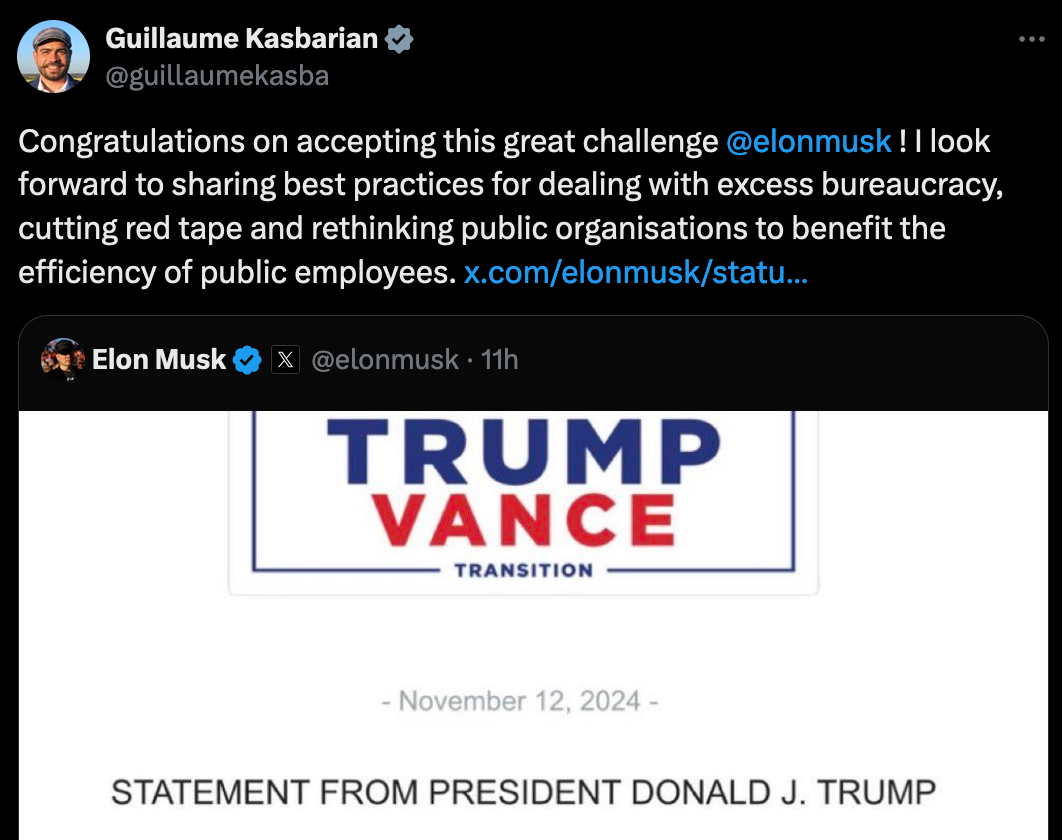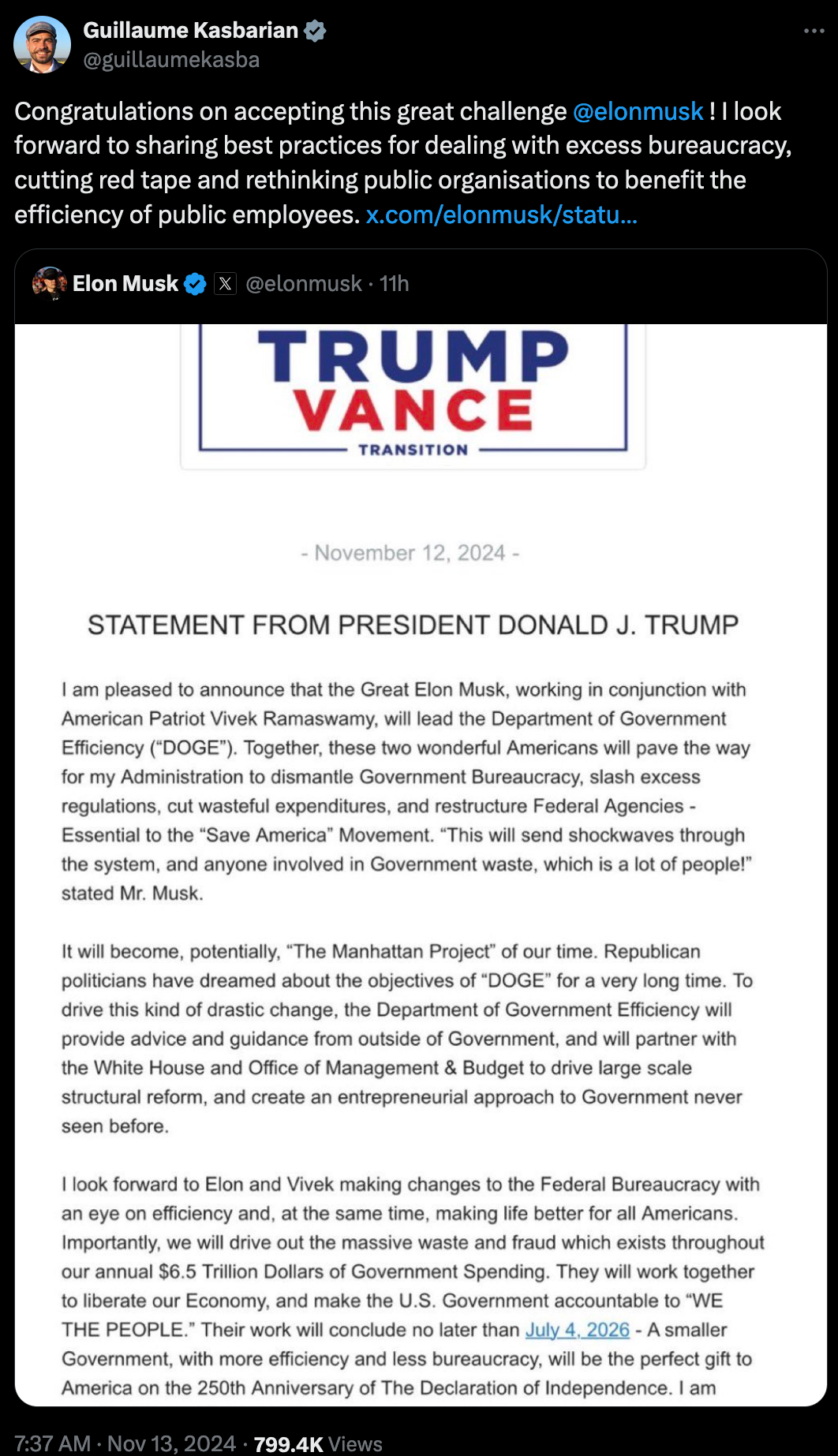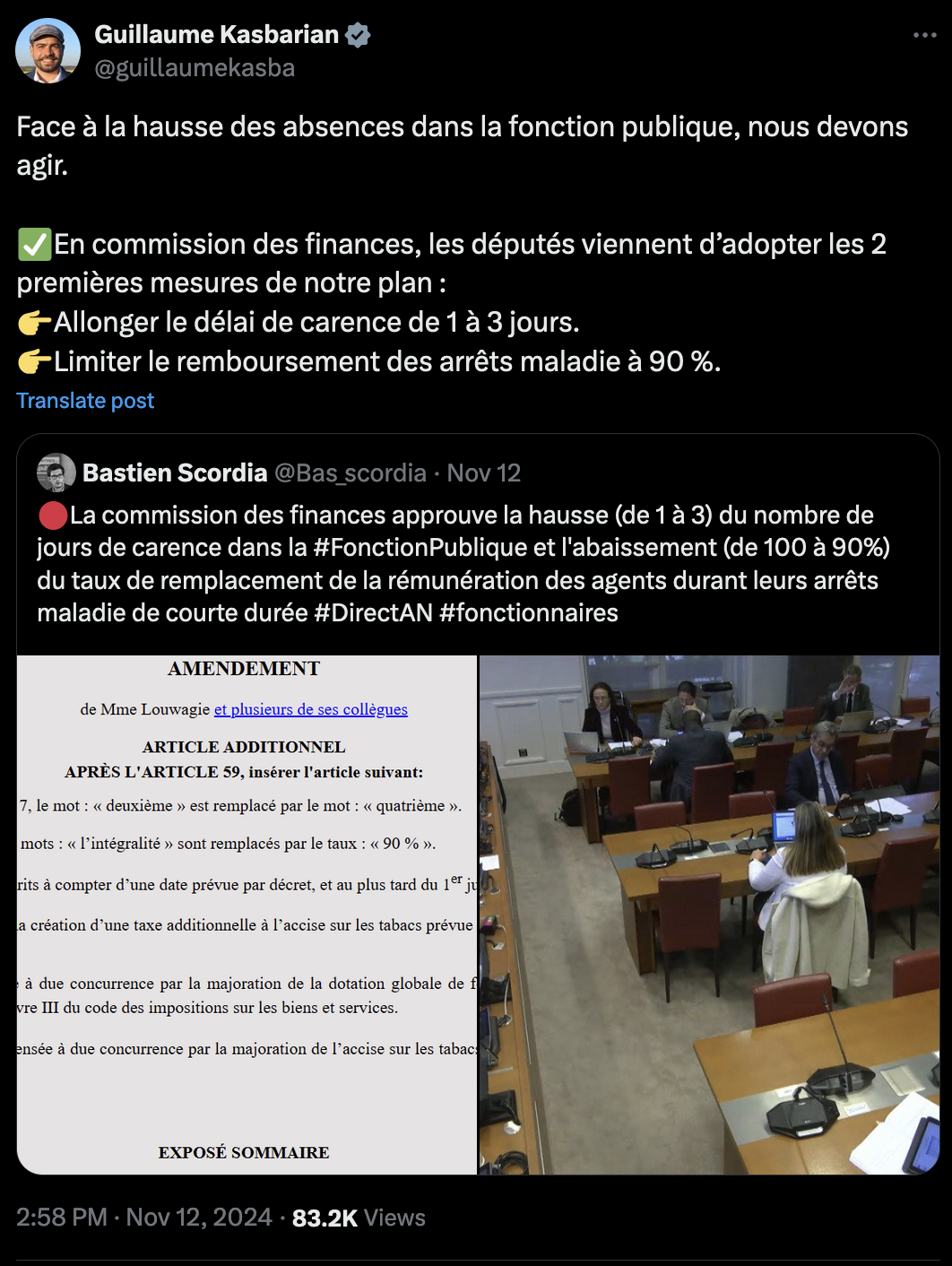French Minister Congratulates Elon Musk as Future Head of the so-called "Manhattan Project of Our Time"

Elon Musk, the anti-immigrantation immigrant billionaire who destroyed the once-beloved social media platform Twitter, financed misleading campaign ads against Kamala Harris, fired striking workers, and builds cars with an "autopilot" technology involved in several fatal accidents, will also assume the role of leading the new Department of Government Efficiency under the Second Trump Administration.
Even though polling suggests that a majority of Western Europeans (79% in France) would have preferred Kamala Harris over Donald Trump, this did not stop French President Emmanuel Macron from being among the first world leaders to congratulate Trump on his victory. This, despite having mocked Trump six years ago in his "Make the Planet Great Again" speech — a favor Trump returned earlier this year in Iowa by mocking the French president.
If congratulating the President-Elect of the United States could be written off as a diplomatic necessity, the same cannot be said for Guillaume Kasbarian, France's newly appointed Minister of Civil Service, Streamlining, and Public Sector Transformation. Kasbarian congratulated Musk on his future appointment to what Trump's press release calls the "Manhattan Project of Our Time": the Department of Government Efficiency ("DODGE").

If one seeks to understand Minister Kasbarian's vision for France, it is worth considering what "excess bureaucracy" and "cutting red tape" have meant in the United States.
The Myth of Excessive Bureaucracy and Red Tape
As documented in John DiIulio's book "Bring Back the Bureaucrats", the American civil service stopped growing in the 1960s, even as federal spending multiplied to meet citizens' needs. This led to the costly and inefficient over-reliance on private contractors performing tasks once done in-house. In fact, the number of private contractors now dwarfs the number of actual civil servants.
Despite this, politicians across the spectrum have perpetuated the myth that federal bureaucracy is bloated and must be capped—or even reduced. This belief becomes a self-fulfilling prophecy: underfunded and understaffed civil services suffer brain drain, increased wait times, and low morale. This opens the door for cost-cutting leaders to outsource key functions to private contractors who claim to find "efficiencies" while making a profit.
"Red tape" has also become synonymous with "meaningless rules" or "burdensome procedures." This resonates particularly with Americans frustrated by tax filing, where citizens manually report income that the IRS already knows. Yet, despite this administrative burden, the IRS has not implemented the semi-automated tax systems common in Europe. Why? Implementing such systems requires a robust civil service, but it also challenges private tax-preparation industries profiting from the status quo.
In reality, the "red tape" decried by politicians often refers to meaningful regulations—those preventing environmental destruction, ensuring airplane safety, or preserving market competition. In the United States, where the federal bureaucracy has largely been reduced to managing private contracts, such regulations often fall by the wayside.
France Still Has Much to Lose
The French are proud of their public services—and for good reason. Civil servants play an active role in French public life:
- Education: Schools are administered by a national bureaucracy, allowing resources and teachers to be dispatched according to policy objectives.
- Healthcare: France’s universal healthcare system ensures lower costs and better outcomes compared to the U.S.
- Transportation: Public investments have produced an impressive network of high-speed rail, world-class highways, and the largest metro project in Europe (Grand Paris Express).
- Local Services: Municipalities manage libraries, theaters, waste collection, after-school programs, and more, maintaining strong local bureaucracies.
Surprisingly for American readers, the profession of civil servant in France still retains prestige. While U.S. graduates from elite schools often favor consulting gigs over federal service, French graduates still aspire to join public administration.
The French public’s resistance to privatization is evident. Outrage erupted when it was revealed that the Education Ministry had paid McKinsey an extraordinary sum for a report, a practice common in the U.S. but widely criticized in France.
The Future of Public Service in France
France’s civil service has long been under attack. In the 1990s, successful public services like the postal service and telecommunications were privatized into La Poste and France Telecom (now Orange).
However, Minister Kasbarian’s tweet congratulating Musk is a mask-off moment, revealing the ideological objectives behind terms like "efficiency" and "streamlining": the degradation of public services and the demonization of civil servants.
Kasbarian has already overseen crackdowns on civil servants’ rights, including tightening sick leave policies—a move he proudly shares on Twitter:

If France’s civil servants and public services have any doubt, they need only look across the Atlantic to see where this path leads




